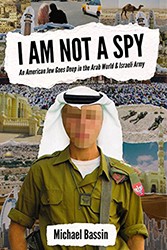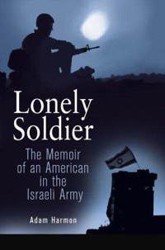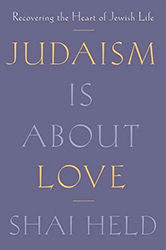Talk about timely: This memoir by Israel’s former and future prime minister reached bookstores just ten days before the election that returned him to office. Like his 1997 book, Fighting Terrorism, and its 2009 sequel, A Durable Peace, Bibi discusses the principles that have motivated Netanyahu all his life — Jewish nationalism, free-market economics, and peace through strength.
The book also offers an account of the events that shaped him, a personal history that continues to inform his politics. His military service in the Israel Defense Force’s most elite unit crucially sharpened his instinct for making quick and bold decisions. And he developed a particular commitment to protecting Jewish lives after the loss of his beloved older brother, Yonatan, in the dramatic rescue of Jews at Entebbe in 1976.
Netanyahu’s family grounded him in Zionism. His great-grandfather, Abraham Marcus, moved to Palestine in 1896, where he formed a close bond with the Yemenite immigrants in his town. Benjamin Segal, his grandfather, left Minneapolis for Petach Tikvah a few years later. Netanyahu’s father, the historian Benzion Netanyahu, campaigned in America in the 1940s for the establishment of a Jewish homeland, working closely with Vladimir Ze’ev Jabotinsky. Jabotinsky’s Revisionist Zionism was to become the political ancestor of Netanyahu’s Likud party.
Before he reached the summit of Israel’s government, Netanyahu spent a lot of time in the United States. He attended high school in Philadelphia, graduated from MIT, and he worked for one of the country’s top-ranked consulting firms, the Boston Consulting Group. In the 1980s, at the age of thirty-five, he became Permanent Representative of Israel to the United Nations, which left him with practical knowledge of international diplomacy, a keen understanding of American politics, and a close familiarity with the impact of media on public opinion.
Each of us is the hero of our own story, and Netanyahu’s account is chock-full of his triumphs in debates, the ovations for his speeches, and his early advocacy of high-tech industry. He is proud of his many breakthroughs in talks with world leaders and the success of his economic reforms. He recalls times when his ideas prevailed despite initial skepticism from opponents and critics.
Netanyahu is also not shy about defending himself and his wife Sara against the “character assassination, vilifications, falsehoods, defamation and lies” to which the media has subjected them. He settles scores with several representatives of the Clinton administration, whose pressures to make concessions to Palestinians were anathema to him. He rebuts recent accusations of corruption: “[N]o treasures were found,” he says, “for the simple reason that we didn’t take any. This was all kept from the public and by press and police alike.”
Anyone interested in Israel’s recent history will find a wealth of fascinating details in this insider’s narrative of wars, controversies, elections, and political maneuvers. Netanyahu relates his stories with a panache that will delight his fans and probably annoy his critics. A special bonus: the book includes seventy pages of extensive notes and a thorough index, making it a great resource for researchers and for the simply curious. Whatever you may think of Bibi’s politics, his autobiography is a landmark.
Bob Goldfarb is President Emeritus of Jewish Creativity International.





